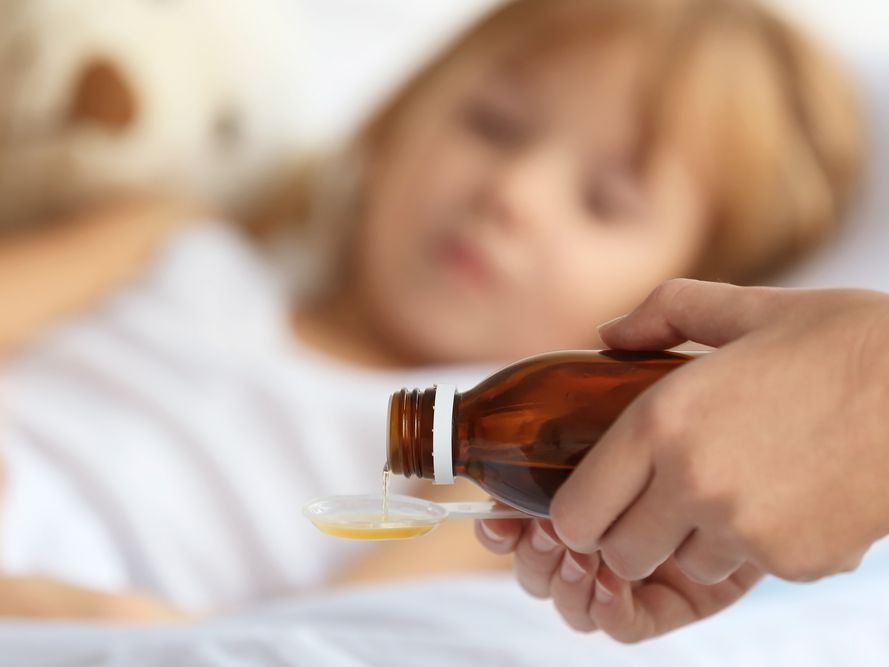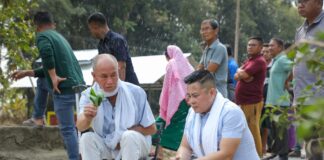Jalandhar: Despite many ailments like regular cold and cough “being self-limiting and getting cured” on their own, the Indian pharmaceutical market is flooded with cough syrups and combination medication without any proven benefits. For a child’s cough, the best medicine is no medicine, said Dr Naresh Purohit, Advisor – National Communicable Disease Control Programme.
Raising concerns following the alert raised by World Health Organisation (WHO) over four India-made cough syrups as the possible reason behind the death of 66 children in Gambia, Principal Investigator for Indian Academy of Preventive Health Dr Purohit told UNI here that cough syrup are one of the top drugs being consumed illogically and bought over-the-counter (OTC) in India.
Visiting Professor at the Faridkot based Baba Farid University of Health Sciences, School of Public Health Dr Purohit cautioned that warnings on cold and cough syrups typically state that the products should not be given to children under the age of four. Parents should not give small children or infants pediatric cold and cough medicine that is designed for older children. “If your child is under the age of two years old, never give them cold and cough products with decongestants and antihistamines without asking the doctor,” he categorically said.
He averred that WHO has recently raised concerns over four cough and cold syrups manufactured by Maiden Pharmaceuticals — Promethazine Oral Solution, Kofexmalin Baby Cough Syrup, Makoff Baby Cough Syrup and Magrip N Cold Syrup. WHO alert has said that the chemicals in the cough and cold syrups that have caused deaths in Gambian kids aged under five years of age included Diethylene glycol (DEG) and ethylene glycol.
Noted physician said that these chemicals are toxic to humans when consumed and the effects include abdominal pain, vomiting, diarrhoea, inability to pass urine, headache, altered mental state, and acute kidney injury which may lead to death.
He revealed that glycerol is often used as a sweetening and thickening agent in cough syrups but is replaced by alternatives such as DEG and ethylene glycol sometimes to save cost. “This has led to mass poisonings in some countries in the past including India,” he added.
He stated that Diethylene glycol related deaths have occurred several times in the country. The first recorded glycol poisoning instance was in 1973, at a Chennai hospital, caused the deaths of 14 children. Thirteen year later, in 1986, similar poisoning at Mumbai’s J J Hospital caused the deaths of 14 patients thought to be recovering and in 1998, 33 children died in two Delhi hospitals following similar poisonings due to spurious drugs.
The fourth mass glycol poisoning event in India due to a pharmaceutical drug in which 12 children had died after consuming cough syrup sold under the brand name of Coldbest-PC in Jammu & Kashmir’s Udhampur between December 2019 and January 2020.
It is for this reason, pointed he that medics, on most occasions, are wary about prescribing generic drugs without being sure of their quality. He informed that according to government health officials a team of the Central Drugs Standard Control Organisation (CDSCO), the Drug Controller General of India (DCGI) and Haryana State Drugs Controller have collected the samples of the four medicines (from the same batch of the drugs in question) for investigation.
According to the Ministry of Health and Family Welfare official release the samples have been sent for testing to Regional Drug Testing Lab, Chandigarh. The results will guide further course of action as well as bring clarity on the inputs received/ to be received from WHO.


